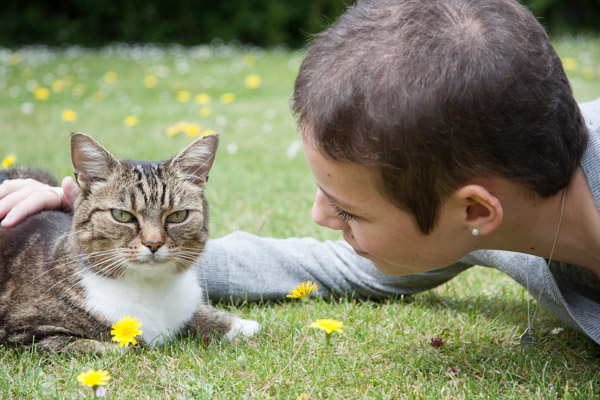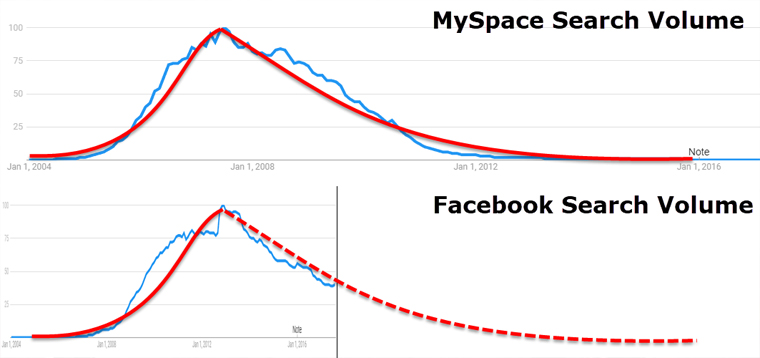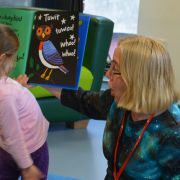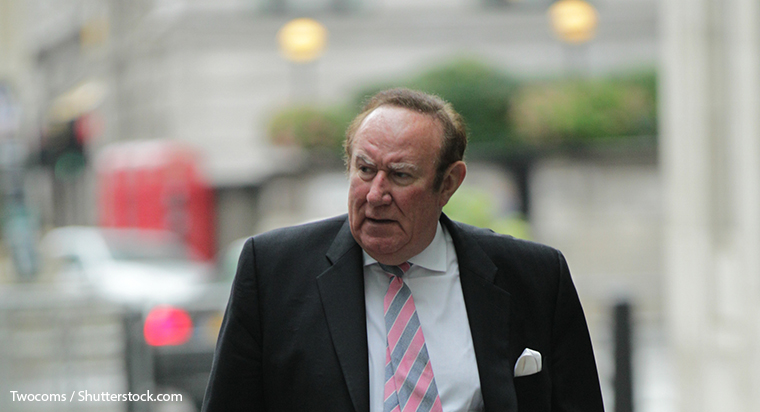Charlotte Eades was a prolific vlogger and charity campaigner who died in February 2016 from glioblastoma. Charlotte’s BAG is a UK registered charity that was set up in October 2016 in Charlotte’s memory.
We’ve spoken to Charlotte’s Mum Alex Eades (AE), brother Miles Eades (ME) and the chair and trustee of Charlotte’s BAG Cressy Brooks (CB) about the charity, the power of Charlotte’s vlogging and her legacy.
What is Charlotte’s BAG?
CB: Our Charlotte, daughter of Alex and sister of Miles, died aged 19 years and 6 days in February 2016 after a devastating two and a half years coping with anaplastic astrocytoma which then developed into full blown glioblastoma. She was first diagnosed aged 16, on the afternoon of her school prom.
Alex, Miles and I set up the charity because we were all determined that Charlotte would not become just another cancer statistic, and because brain cancer (of which there are over 100 types) is significantly under-funded, receiving just one per cent of national cancer research funding. With the current rate of investment, it is estimated that it will be 100 years until any sort of cure is found – compare that with the leaps made in treatment of breast cancer following a major cash input. The last significant development in brain cancer treatment was the introduction of temozolomide in 1999, when Charlotte was already two years old.
Why Charlotte’s BAG? BAG stands for Battle Against Glioblastoma, and also celebrates Charlotte’s enduring love of hand bags, the higher end the better!
Can you tell us about glioblastoma and why more people should be aware of it?
CB: Glioblastoma is one of over a hundred types of brain cancer. None of them, even the so-called benign ones, are good to have, but medics call glioblastoma ‘The Terminator’ and a diagnosis of a grade IV glioblastoma is currently an effective death sentence.
It is a particularly cruel disease, because it progressively removes every physical capability (speech, movement, continence etc) while the conscious mind knows and understands every single progression of the disease.
Around 5,000 people in the UK die every year from glioblastoma, making it the single biggest cancer killer of the under 40s.
Why did Charlotte Eades choose vlogging to share her story?
CB: Charlotte found that her world was closing in just as she, like anyone aged 16, would have expected it to open up for her. She suddenly entered a world of hospitals, treatments, hair loss, sudden weight gain, along with the fact that she couldn’t go to college, she couldn’t learn to drive, she couldn’t travel to the USA as she would have liked to. She was also registered disabled, and had to start wearing hearing aids.
AE: Charlotte announced one day that she would start vlogging, and we really didn’t take much notice – we just said ‘OK darling how lovely’. And then she just went on and on, partly inspired by the fact that she couldn’t find anything about teenagers with cancer on the internet – loads about cancer, but not about teenagers who were in that position. So she just learnt how to do it all for herself, she talked about anything and everything that came into her head – sometimes about her illness, but especially in the earlier days, it would often be about make-up, shopping, her cat or her favourite music. She just talked out loud really, and it gave her a voice and a window onto a world which was becoming increasingly inaccessible to her as she became more ill.

Why was it important for Charlotte to share her story?
AE: Prior to her diagnosis Charlotte had been bullied at school and suffered from extreme anxiety. Then, four months before her diagnosis, she started having really bad headaches and she read a newspaper article which convinced her she had a brain tumour. We went back and forth to the doctors, no one believed her until we eventually went to A&E and the process was set in motion.
Although no one would ever want to have cancer, it gave Charlotte a voice. She somehow gained the strength to start vlogging, she would speak to audiences of up to 300 people, she started our local Race for Life, and she appeared on national TV talking about her experience. She won awards from Clic-Sargent and Cancer Research UK for her work.
For Charlotte, it was about sharing her experience, to provide support for other teenagers with cancer, and, I suppose, to make a difference
How did Charlotte’s vlog grow in the digital community?
ME: Charlotte’s vlog grew really quite organically, as a result of the diversity of her content, her honesty and frankness, and I also have to say because of her beauty, not just physically but in terms of her nature. Charlotte wanted not just to raise awareness of her particular cancer, she also wanted to show that you can, actually, have a life, enjoy yourself, find pleasure in things while undergoing treatment for cancer.
She was really keen to demonstrate that issues such as hair loss, or weight gain due to medication, should never prevent anyone from living a fulfilling and enjoyable life. She did that right up to quite close to the end, and she struck a chord with people.
 Charlotte touched a lot of people’s lives, what was the reaction online to her passing?
Charlotte touched a lot of people’s lives, what was the reaction online to her passing?
CB: When Charlotte died it was, of course, an extremely private event. But when the news got out, it became global, with coverage as far afield as Russia, Australia, the USA and of course the UK.
The family received so many kind messages, which was quite overwhelming at the time, but every single one was truly appreciated. Alex and Miles and the rest of the family needed some time for a few months, but it was clear to all of us that Charlotte had left a huge footprint and we needed to make something good come out of this experience.
Fairly recently we added a tributes section to our website, which includes some really beautiful and heartfelt comments about the difference that Charlotte made.
You’ve taken up the mantle of Charlotte’s vlogging, what’s it like following in the footsteps of Charlotte?
AE: It is really really hard! Vlogging didn’t come naturally to me or Miles, and I am sure we come across as complete amateurs… but we strongly believe that we need to keep Charlotte’s voice going. Her followers continue to follow us, and they make very kind comments, which is lovely. We are trying to explore all the areas we can – we talk about grief, bereavement, how much we miss Charlotte, what are the right – or wrong – things to say to someone who has lost a child or a sibling, and we talk about what the charity is trying to do.
We are so lucky really, we continually find unseen and unedited footage that Charlotte made, and that allows us to keep going in her name.
How does vlogging fit in with the other areas of promotion and fundraising?
AE: Vlogging is something we feel we have to do for Charlotte and her followers. We do it because it keeps her voice alive, and because we know people like it. Charlotte’s vlogs were unique – for example, a major pharmaceutical company is using them for staff training because they are such a significant record of the physical decline that glioblastoma causes, which is not available elsewhere.
CB: Charlotte’s vlogs and those created subsequently by Alex and Miles represent a very powerful marketing tool. In charity terms, we are still pretty tiny, just ten months old, and we are in a world where the big charities have every resource at their fingertips and the money to pay for them. We are taking a very different approach; we have no salaries, no advertising, no overheads and every single penny we raise goes into research at King’s College Hospital, London in a new unit called Charlotte’s Project within the Mowatt Laboratories.
We’re actually really proud of what we’ve achieved so far – almost doubled our first year’s target within ten months; raised enough money to fund a research assistant for three years; and we’ve created a PR vehicle which is strongly centred around Charlotte’s achievements during her very short life, and is – I guess because we are family – totally respectful of Charlotte’s memory.
We use social media as much as we possibly can – we are very present on Facebook and Twitter, and we’re trying to get better on Instagram. Our website was created for free by a wonderful friend. We have also established really strong links with key mainstream media who are really supportive of what we are doing – this is currently on a fairly local level, but we will be ramping up a gear for our first birthday at the end of October when we have some very significant news to announce.
What goals does the charity have?
AE: It’s about Charlotte. We want to keep her memory alive and ensure her voice is still being heard. That’s very important for us.
CB: Glioblastoma can be beaten, given enough money. We are fortunate to be working so closely with one of the world’s leading paediatric oncologists, who specialises in the disease, and with a top neurosurgeon, and we know that we will win, hopefully sooner than everyone expects.
In practical terms, that means fundraising for research and ensuring that the results are shared with the medical community worldwide, and also by educating people in the symptoms, diagnosis, treatment and care of patients with glioblastoma.
For more information about Charlotte’s BAG, visit the website, the YouTube channel, Facebook page, Twitter and Instagram.






















 Charlotte touched a lot of people’s lives, what was the reaction online to her passing?
Charlotte touched a lot of people’s lives, what was the reaction online to her passing?









